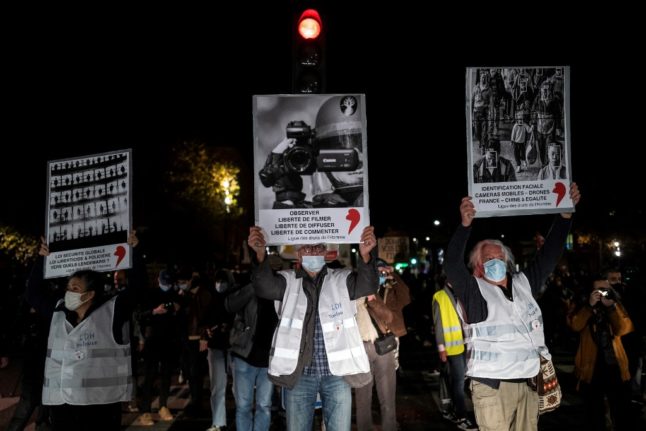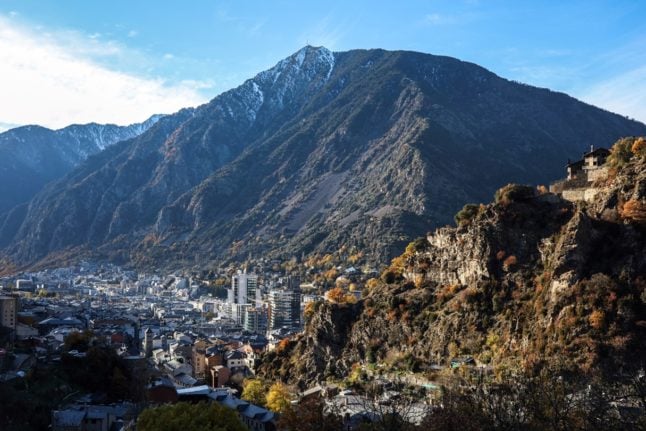His announcement came as dozens of protests are planned around France this weekend to protest over Article 24 of the new global bill.
allo @Interieur_Gouv – c'est pour des rassemblements
Partout en France, des marches, cortèges et rassemblements s'organisent samedi contre la #LoiSecuriteGlobale
Une carte les regroupe: https://t.co/y7Lns7Py2q
DM ouverts pour annoncer les initiatives non référencées. pic.twitter.com/AjDI3JtO3Q
— David Dufresne (@davduf) November 26, 2020
Click here for the interactive map giving details of demonstrations in your area.
In the wake of a new scandal over police brutality that has led to fresh pressure to backtrack, Castex announced that he was going to set up “an independent commission with responsibility for proposing a new wording for Article 24.”
Article 24 of the law, passed during a first reading by the lower house of parliament on Tuesday, would criminalise the publication (either by news organisations or on social media) of images of on-duty police officers if there was manifest intent to harm their “physical or psychological integrity”.
Media groups in France, including AFP, have raised alarm about the possible impact on journalists covering police operations, while other critics say the wording is intended to dissuade citizens from videoing police and holding them accountable.

CLICK HERE for interactive map
The law has led French and UN rights experts as well as the European Union to express concern about its possible impact, while thousands of protesters have already made their opposition clear in street protests.
Supporters of the law, above all Interior Minister Gérald Darmanin, say it is necessary to protect the identity of law enforcement officers who are at risk of harassment, threats and violence.
Mobile phone footage of police brutality has played a key role in recent scandals in France, as well as in the global uproar over the death of George Floyd during his arrest in the United States in May.
On Thursday, video images of three police officers beating a black music producer inside his studio in Paris caused an outcry that saw politicians, footballers including Antoine Grizeman and Kylian Mbappé and millions of social media users express their disgust.
Michel, un producteur de musique, a été tabassé par trois policiers samedi dernier à Paris. Ils l’ont ensuite accusé à tort d'avoir voulu prendre leurs armes et de rébellion.
Mais les policiers ignoraient une chose : tout a été filmé. pic.twitter.com/PTo71fzJzP
— David Perrotin (@davidperrotin) November 26, 2020
Mbappé tweeted the racial slur that the officers reportedly used while beating the man, adding: “Unbearable video, unacceptable violence”.
— Kylian Mbappé (@KMbappe) November 26, 2020
After clearing the lower house, the draft security law would now need to be approved by the Senate. Some experts believe it could also face censure from France constitutional court.



 Please whitelist us to continue reading.
Please whitelist us to continue reading.
Maybe the government were trying to sneak this outrageous legislation in without undue alarm and despondency, but with journalists in the firing line, and with people shut up at home with nothing to do but socialise on the internet it’s asking for trouble. As it is supposedly illegal to protest under a lock down, which will be ignored, a whole can of worms will emerge. Talk about inept.